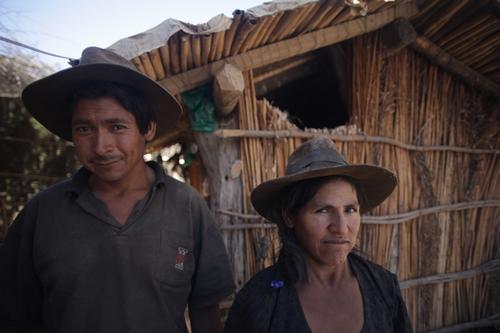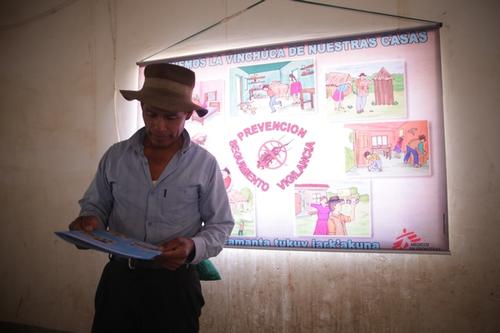Sucre – Médecins Sans Frontières (MSF) is launching a new project to ensure that people can be diagnosed and treated for Chagas disease in the town of Monteagudo, in the Chuquisaca department of southern Bolivia. In partnership with local healthcare institutions, the international medical humanitarian organisation will develop a comprehensive care model for primary and secondary care that will be integrated into the existing healthcare system.
“This partnership model aims to achieve greater empowerment for national authorities and, therefore, improve the sustainability of the programme over time,” said Martin Cazenave, MSF general coordinator in the country. “The idea is that the intervention model be replicated in the future in other municipalities and without the need for MSF’s direct participation,” he added.
Last March, MSF offered an introductory workshop on diagnosing and treating Chagas disease for healthcare staff in the municipality, which was also attended by staff from the surrounding areas.

“The enthusiasm and participation far exceeded our expectations. About 130 people attended. If we have ever underestimated the interest of health personnel in areas affected by Chagas disease, this was enough to show that we were wrong,” said Cazenave.
This workshop forms part of the training activities that the organisation will carry out, in addition to providing technical support to the healthcare system in order to improve access to diagnosis and treatment.
The new project in Monteagudo will last two years, until the end of 2016.
Currently, Chuquisaca is one of the largest departments with the greatest prevalence of Chagas in the country, along with Cochabamba, Santa Cruz and Tarija. The main vector, Triatoma infestans, originates from these areas and has proven itself to be highly adaptable, which makes it more difficult to control the bugs that transmit the disease, as well as tackle the disease itself in a comprehensive manner.
MSF has worked in Bolivia since 1986. It is estimated that over one million people suffer from Chagas disease in Bolivia. Since 2002, MSF has worked continuously on Chagas programmes in Bolivia, where less than 4% of sufferers receive the treatment they need.




